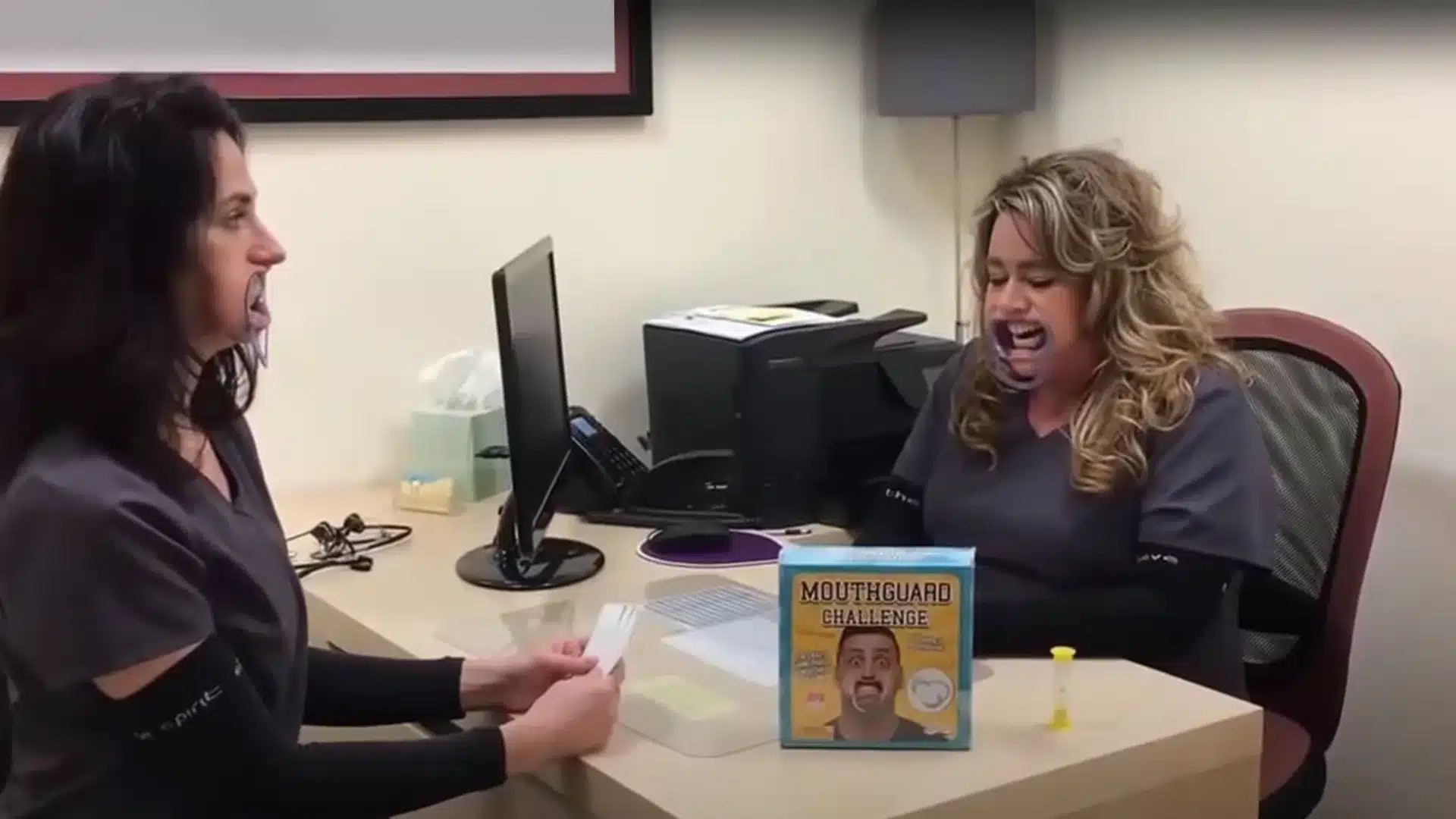Whether you keep up with Game of Thrones or not, Winter is most definitely here in Maine.

Last week the number registered on my car’s temperature gauge was -22, which can create all kinds of problems for; your car’s battery, your extremities, your general mood and . . . your teeth.
As hard as teeth are, they aren’t immune to the extremes of temperature – we have all experienced that random zinger when sucking down a Mocha Frappuccino.
According to the Academy of General Dentistry, 1 out of every 8 people in the U.S. suffer at some time with sensitive teeth, so if they already hurt, a blast of arctic winter air to the mouth can be just as painful as having a hot coffee or a pint of Haagen Dazs.
In fact, tooth sensitivity – or dentin hypersensitivity in geek speak – is one of the most common dental complaints people have and since your front teeth are exposed to temperatures differences of as much as 120 degrees several times a day, it’s no wonder that 40 million adults in the US suffer from some form of sensitivity.
Tooth sensitivity is also subjective – it can mean anything from having a mild twinge of discomfort to experiencing some pretty severe pain.
Winter Air Can Cause Tooth Sensitivity
Breathing in excessively cold air causes teeth to contract, and then expand again when heated back to the body’s natural temperature. Dramatic shifts in temperature causes the dentin (tiny tubules in the second layer of your tooth beneath the enamel) to expand and contract at a faster rate than your enamel, which inevitably causes stress cracks to form.
Think of your enamel as a puffy North Face jacket for the teeth. Cracks may not always be visible, and don’t affect the integrity of your tooth; however, they can cause those sharp zingers. The actual pain you experience is caused by the fluid moving in the tubules inside the dentin.
Some of the primary reasons for cold weather induced pain in your mouth can include; defective restorations (fillings, crowns, bridges) meaning there are open gaps between the material and your tooth structure, cracked teeth, bite problems, receding gums (which exposes the unprotected root) as a result of periodontal disease, cavities and large amalgam (silver) fillings because metal expands and contracts more quickly than your natural tooth structure.
Then there’s the classic image of someone standing outside in the cold with chattering teeth, many people often clench their jaw to brace against the cold and don’t even realize it, where unfortunately clenching and grinding can cause both erosion of the protective enamel layer and recession of the gums, again exposing the root to the elements.
“Winterizing” Your Teeth
OK, so what can you do to stop the cold sensitivity (apart from booking yourself a trip to go somewhere warm with bottomless umbrella drinks)?
Obviously breathing in and out through your nose will help. Your lips, cheeks and tongue tend to insulate your teeth from the cold when your mouth is closed, so once you close it and cover your teeth and get the saliva circulating, the pain should recede. This definitely makes talking difficult.
You can also use a scarf to help insulate your jaw and mouth, but neither of those strategies solve the cause of the problem and only help to alleviate the immediate discomfort when you happen to be outside sucking in the cold, arctic air.
Heed the advice that Mindy, Karey and Angie dole out every time you come in for a hygiene appointment; use a soft-bristled tooth brush and don’t scrub at your teeth like you’re cleaning the kitchen floor.
Here’s a quick list of things you can do to lessen tooth sensitivity in the winter:
- Avoid breathing in through your mouth when you’re outside.
- Use a scarf to help insulate your jaw and mouth when you’re outside.
- Use a soft toothbrush and don’t brush too hard.
- Floss; it will help to stimulate your gums so they may not recede as much.
- Avoid tooth whitening procedures (or whitening toothpastes).
- Avoid acidic foods.
- Switch to a sensitive tooth paste and rinse with a fluoride mouthwash.
- Work with your dentist to determine the cause of increased cold sensitivity.
You could also hibernate until Spring and binge watch Game of Thrones, but if you watch 10 hours a day you’ll be all caught up in about a week (so I’ve been told).
A Note About Cold & Flu Season
Finally, cold and flu season is the time of year we get a lot more phone calls from patients complaining of tooth aches. However, sinus pressure and allergy problems are often the cause, because they are located just above the pre-molars and first molars, so people often report a generalized toothache, rather than being able to identify a specific area. Regardless, the symptoms they describe are the same; achy, and sensitive to temperature and chewing. A quick x-ray and test of the teeth in the area is all that’s needed to determine the cause.
When To Call Your Dentist
If your teeth are extremely sensitive to cold temperatures (the weather forecast doesn’t look like it’s letting up any time soon) and it’s been more than a week, give us a call at (207) 782-5308 so that we can diagnose what’s going on.
Maybe you’ll get lucky and I’ll write a prescription to book a flight somewhere warm.





